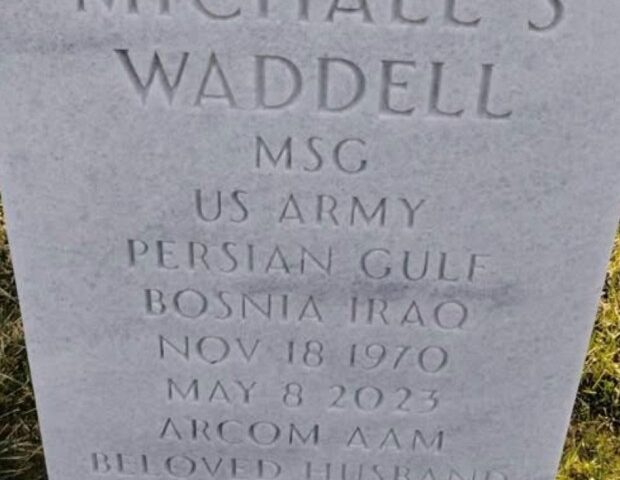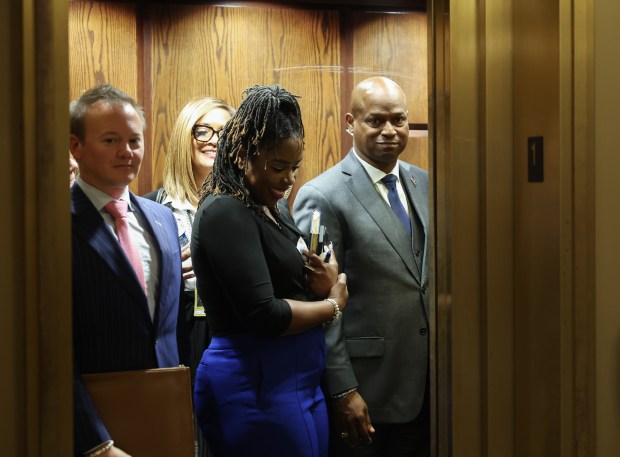A couple years ago an army of concerned mothers and grandmothers from the nonprofit group Community Organizing and Family Issues (COFI) fanned out across the state and talked to more than 1,000 Black and Hispanic families about their greatest concerns.
Mental health, this survey revealed, ranked at the top. Which came as no surprise to two Aurora women who have become leaders in this Chicago-based nonprofit that began in 1995 with Barack Obama as one of its founders.
The focus of COFI’s mission for “economic, racial and social justice” is to train, organize and support parents to help shape public decisions that greatly impact families of color. While the pandemic certainly affected the mental health of many people, Black and Hispanic communities struggled the most, according to COFI data, as these families also dealt with poverty, racism and anti-immigration sentiment.
COVID-19 only exacerbated a deeply-entrenched problem, insists Auroran Liliana Olayo, who became involved with COFI a decade ago through East Aurora School District 131 after she felt those frustrations – “I didn’t know how to access resources” – when trying to help one of her three children struggling in school.
Empowered by the school district and COFI, which she now realizes had seen leadership potential in her, Olayo not only found help for her child but also her voice. Those who knew her before and after COFI, she recalled, “could not believe I was the same person … it changed my life.”
Six years later, Olayo passed on that training, and that confidence, to Sendy Vasquez when this Aurora mother faced a similar challenge with one of her four children.
“My daughter was struggling,” Vasquez said through an interpreter on a Zoom call earlier this week. “I got a piece of paper with a number on it … there was a six-month wait … that wasn’t good enough.”
Today she and Olayo are among that growing army of COFI’s parents volunteering their time to help other families of color navigate a system that can seem unavailable and overwhelming. The two Aurora women not only played a major role in this COFI report, released Thursday, the duo and other parents in Kane County worked closely with state Sen. Karina Villa, D-West Chicago, to launch a mental health support pilot in Aurora.
The Parent Power Center on Ridgeway Avenue, which received a legislative add-on of $250,000 from Villa’s 25th District office, has been offering peer-to-peer support groups since January, where parents frustrated or intimidated by barriers they face in family service programs, school systems or government agencies, find leadership development and support from those who have, as Olayo says, “walked the walk.”
In addition to Aurora and Chicago, COFI has started Power-Pac groups in Elgin, East St. Louis and Evanston, and is forming partnerships with other community groups, including the Kane County County Health Department and Rush University Medical Center.
Their numbers are growing locally, and their voices are becoming louder. In May, for example, Olayo and Vasquez joined around 250 parents – including more than 60 from Aurora – on COFI’s annual “Moms on a Mission” trip to Springfield, where they let policymakers know this fight for better legislation to help their families included funding for early intervention services.
On Thursday morning, the results of the 1,033-family survey were introduced to the public, as were five solutions that show how policymakers, schools and health care professions can work with COFI leaders to address public health challenges. The event, held at the nonprofit’s downtown Chicago headquarters, was the launch of its new publication “Shining a Light: How Parent Led Solutions can Heal our Communities and Address Trauma.”
The most striking result of the survey, according to COFI officials, revealed that 50% of respondents had no services in their area to support their family’s emotional health needs. When asked about other barriers to accessing mental health services, 37% named affordability as a challenge, 29% said there were long wait lists and limited appointments, 23% said transportation or location was an issue and 19% said there was a lack of information about services and how to find them.
The solutions COFI parents identified are peer support and parent-to-parent programs that fill gaps in underserved communities, sensible Medicaid reforms that could make mental health care more affordable, expanding community sports and arts programming, supporting and investing in community mental health services and making sure those involved in education, government and health care have a healing-centered framework, not just formally-trained professionals.
“The survey was completed last year. Now action is needed,” insisted Olaya when we spoke before Thursday’s event that featured her and several other mothers, as well as leaders from Chicago Public Schools, Rush University Medical Center and Villa’s office.
“Parents have to be at the table when these issues are being discussed and decisions being made,” she told me. “Peer to peer, heart to heart … we are sharing the power, changing the culture and investing in parents.
“We invite families to know what we have here.”
The group’s website is https://cofionline.org/.
dcrosby@tribpub.com





